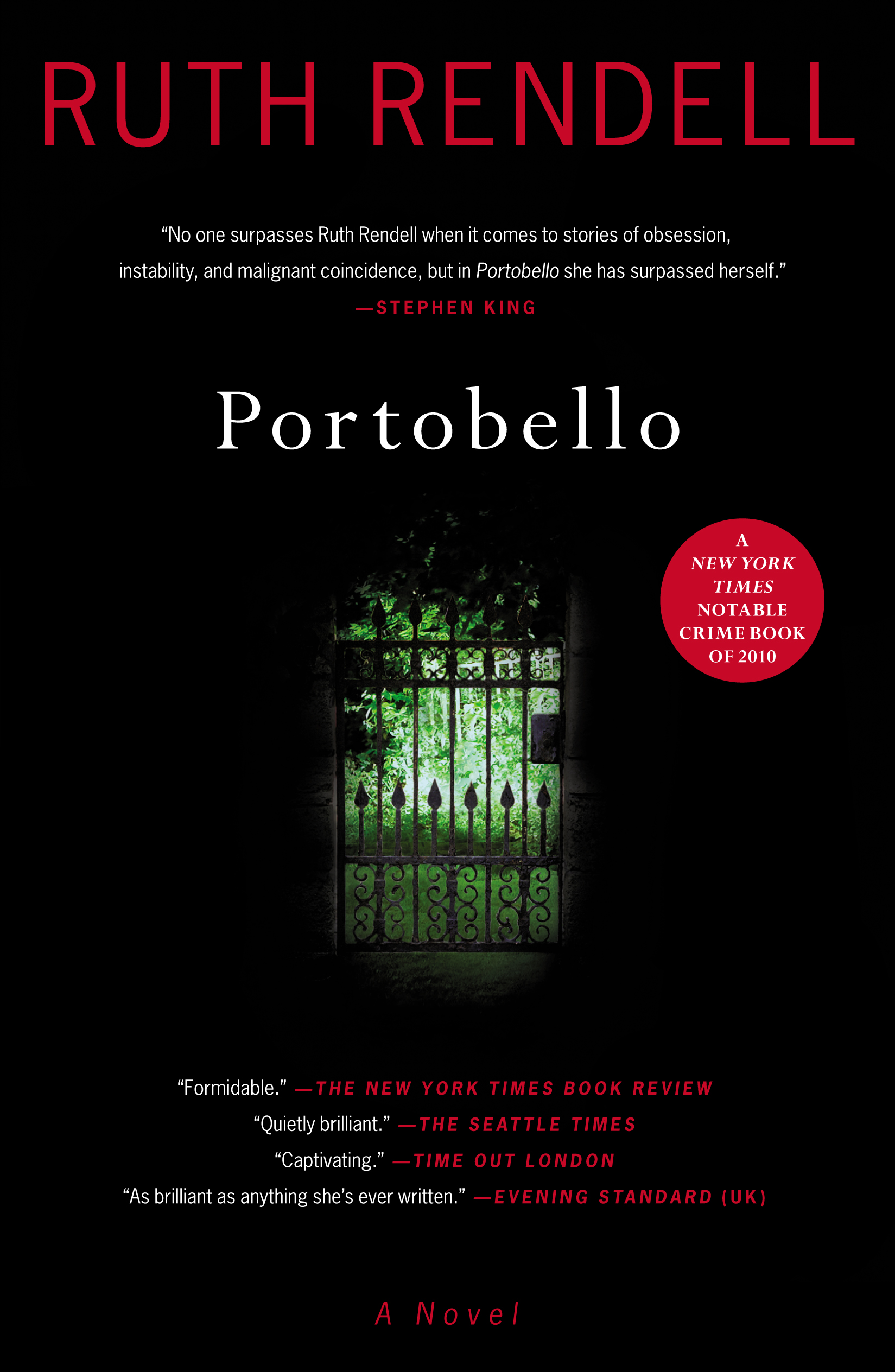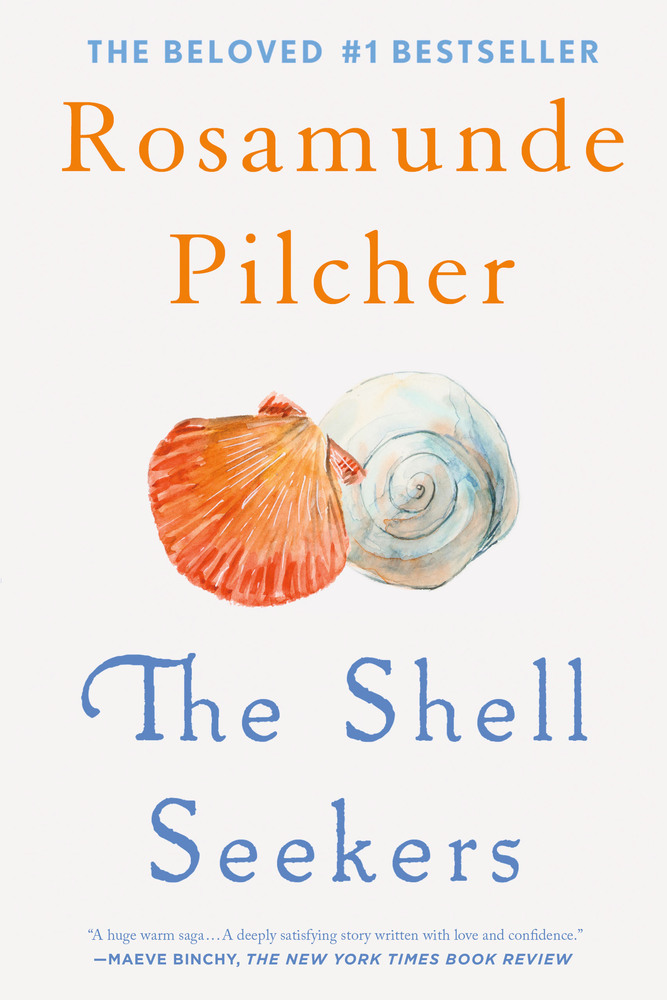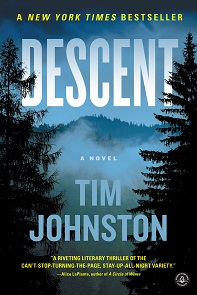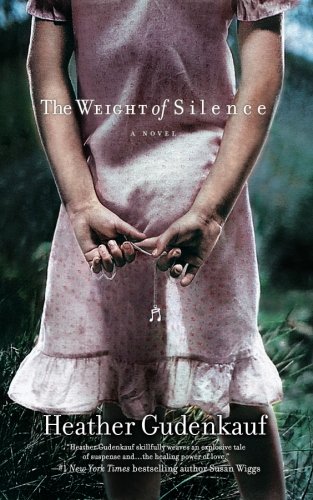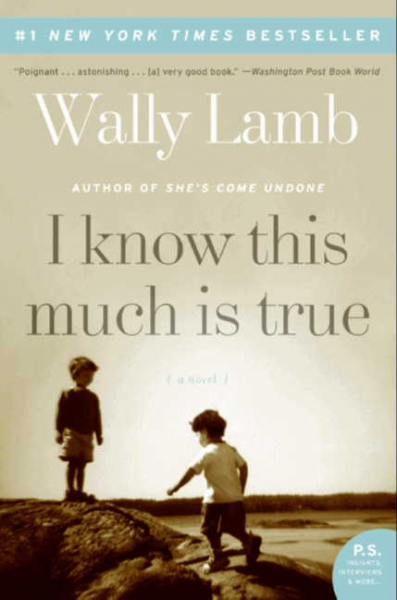We always love a good book blurb, but we have a special place in our hearts for a blurb from an author who includes insights into how a book impacted their own writing. Looking back at past reviews on Off the Shelf, we’ve rounded up heartfelt book reviews written by fellow authors, from Mary Alice Monroe to Joanna Cannon.

6 Heartfelt Book Reviews by Authors You Know and Love
Stories of the ordinary, and of lives thrown together by chance and coincidence, have always fascinated me, and in Ruth Rendell’s wonderful PORTOBELLO, you will find both. Her characters are linked only by a postcode, living their small, unpeopled lives in the area of London’s Portobello market, until a simple twist of fate brings them together. Then their days become as complex, and as colorful, as the market itself. I have loved Rendell’s sharp, observant writing since I was a teenager, and there is no doubt her influence is reflected in my own novel THE TROUBLE WITH GOATS AND SHEEP, set on a very ordinary, seemingly inconspicuous avenue.
When Eugene Wren discovers an envelope bulging with cash, he posts notices all around Notting Hill in order to find the rightful owner. This ill-conceived act invites a slew of volatile characters into his life and creates a chain of events with consequences that will change them all. It is a wonderfully complex depiction of one of London’s most intriguing neighborhoods—and the dangers beneath its posh veneer.
As a writer, I’m a voracious reader. And like many fellow book lovers, I have a shelf in my personal library reserved for my “keepers,” those most treasured, life-changing books. My go-to novel for pure pleasure, however, a book read so often the pages are dog-eared, is THE SHELL SEEKERS by Rosamunde Pilcher. A number-one bestseller when it was released in 1987, the novel focuses on Penelope Stern Keeling, an elderly British woman who returns home from the hospital after a heart attack. She relives her life through flashbacks from her point of view and those of her three children. What I love most is that Penelope Keeling’s life is not extraordinary, but it spans “a time of huge importance and change in the world”—World War II and the post-war years. Yet the novel is not about great battles or heroics, but how everyday people deal with everyday hardships and joys. Pilcher excels in the universal, describing the details of life that we all relate to—and she does it in such a charming manner. She spins a web with dialogue so fresh and natural that we are unaware we are learning important facts that move the story forward. Dialogue is supposed to do this in novels, but few writers succeed as well as Pilcher.
Every few years, there’s one book I latch onto that I keep recommending to people, over and over. And for the last year, that book has been DESCENT by Tim Johnston. I love character-driven thrillers, and this book was geared perfectly for me. But—more than the type of book—there’s something more, something that lingers, that keeps me coming back to it.
What makes a book the type of book you keep recommending to people, over and over? I think it’s a feeling you want to convey; something you can’t quite explain, but it cracks you open a little on the journey. Ultimately, DESCENT is more than a mystery or an exploration of a family in the aftermath of a tragedy: it’s a story about resilience, and the many facets of the endurance of the human spirit—to survive, to hope, to go on.
The Courtland family is taking one last vacation in the Rocky Mountains before their daughter leaves for college. But when Caitlin and her younger brother, Sean, go out for an early morning run and only Sean returns, the mountains become as terrifying as they are majestic.
Read our review of DESCENT here.
MENTIONED IN:
Beginning in North Carolina just years after the Civil War, CAROLINA BUILT recounts the life of a real estate magnate whose goal was to build a lasting legacy for herself and her daughters. It is the true story of a woman born into slavery and freed at the age of nine, who dreams big and educates herself to become a businesswoman.
From the first page, I felt that Josephine was a kindred spirit, or as my character Bitsi (in THE PARIS LIBRARY) would say, a book mate. Josephine’s grandmother tells her, “You get so wrapped up in those books, nobody can reach you.” Later, Josephine says, “I love to read about different times and different places, and all the lives that people can live.” And this is what I appreciated most about CAROLINA BUILT: we walk in the shoes of the characters. In the course of buying a piece of land, Josephine Leary must deal with a lawyer who had volunteered to fight for the Confederate Army. How must that feel to her?
This is what the best literature does: with quiet simplicity it asks us to consider the lives of others, to feel what they feel. CAROLINA BUILT inspires me as a writer, and reminds me of the importance of writing about women forgotten by history.
A vivid and moving novel based on the incredible life of real estate magnate Josephine N. Leary—a previously untold story of passion, perseverance, and building a legacy after emancipation in North Carolina.
Josephine N. Leary is determined to build a life of her own and a future for her family. When she moves to Edenton, North Carolina from the plantation where she was born, she is free, newly married, and ready to follow her dreams.
As the demands of life pull Josephine’s attention—deepening her marriage, mothering her daughters, supporting her grandmother—she struggles to balance her real estate aspirations with the realities of keeping life going every day. She teaches herself to be a business woman, to manage her finances, and to make smart investments in the local real estate market. But with each passing year, it grows more and more difficult to focus on building her legacy from the ground up.
Moving and inspiring, Josephine Leary’s untold story speaks to the part of us that dares to dream bigger, tear down whatever stands in our way, and build something better for the loved ones we leave behind.
MENTIONED IN:
A good book should draw you in right from the start. I’ve always felt that way, both as a reader and as a writer. There are simply too many good books in the world—and too little time—to spin our wheels delving into something that doesn’t hook us.
That’s why THE WEIGHT OF SILENCE by Heather Gudenkauf is still so fresh in my mind. The book starts with the seeds of a mystery, piquing the reader’s interest immediately. Who is the little girl the narrator is talking about? What’s she doing running through the woods in her nightgown? And why has she neglected to say a single word in the last three years?
But those breadcrumbs that Gudenkauf scatters for us don’t captivate on their own. What captured my attention from the very first sentence was the unusual choice to begin the story in the second person. “Louis and I see you nearly at the same time,” the novel starts, as the chapter’s narrator speaks about the mysterious little girl by talking directly to her. That sort of thing doesn’t often work, but by the time I’d read the first two pages, I was enthralled.
I learned so much about the craft of writing from this book. The lessons came thick and fast. I saw that if I was ever going to start writing a book, I needed an impactful opening. Within the first few pages of I KNOW THIS MUCH IS TRUE, we find out that our imperfect protagonist’s twin brother, Thomas, has chopped off his own arm in the local library. Boom! What a fantastic start.
Every character in this book has a complex backstory; all could have books based on their lives, too. Wally Lamb is not afraid to give his characters deep flaws, which makes for delicious reading. We know these guys. Hell, we are these guys. Which is why I emotionally connected to so many of these characters, and why I am rooting for Dominick Birdsey despite all his imperfections. By the end of the book, the author has won our sympathy for even the most despicable members of his cast, as we feel we have lived our lives with them. Wally Lamb ultimately gives us a greater understanding of the human condition.
Dominick and Thomas are identical in every respect except one: Thomas suffers from paranoid schizophrenia. After Thomas cuts off his own hand in what he believes to be an act of sacrificial protest, Dominick must review his own status as the “normal” twin and confront the dark and suppressed truths of his own life in this tale of alienation, connection, and, above all, the power of familial bonds.
Photo credit: iStock / Ekaterina Morozova

